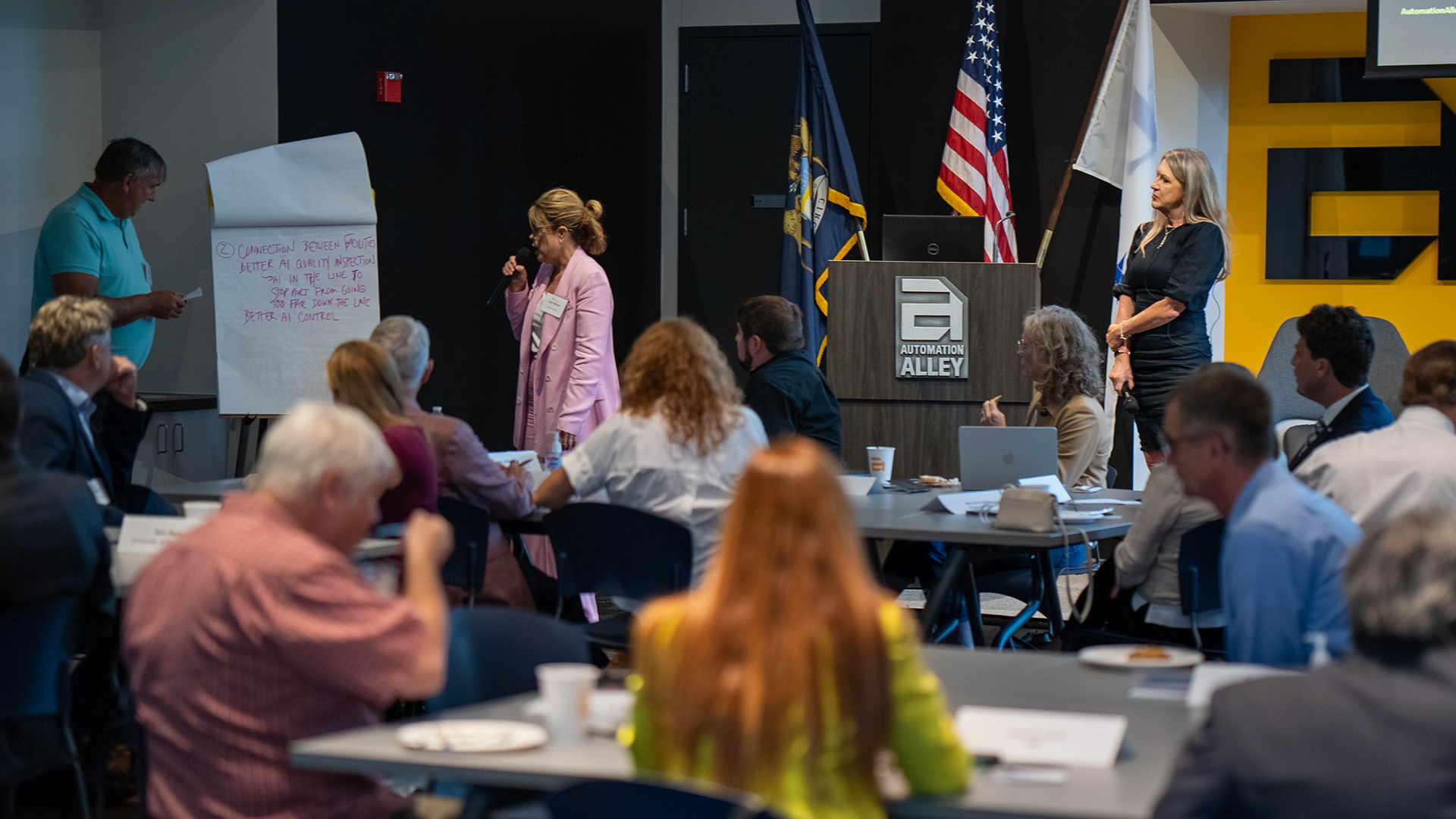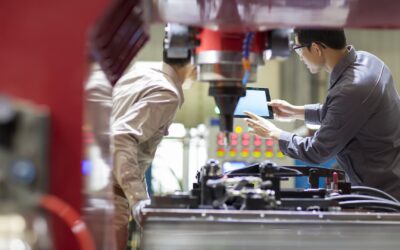Advancements in 3D printing technologies and materials are fueling the next generation of additive manufacturing, with a renewed focus on production. With its unparalleled ability to increase speed-to-market, lower costs, reduce waste, and customize specialty parts, 3D printing will forever change the way we make products and will accelerate the circular economy, linking material, design, and production in a continuous and sustainable loop.
The US Centre for Advanced Manufacturing, in partnership with The World Economic Forum, hosted a timely roundtable on Additive Manufacturing at Automation Alley’s Troy, Michigan headquarters on August 25 as part of its 2022 Industry 4.0 AMHUB roundtable series, which is centered around the most relevant and pressing issues facing advanced manufacturing today.
3D printing adoption is accelerating, and companies are recognizing the value that additive manufacturing can bring to their businesses. According to a 2022 report from the World Economic Forum, although not all additive manufacturing predictions and forecasts have become reality, it still manages an average yearly growth rate of 20%.
The AMHUB Roundtables bring together leaders from industry, academia, and government to promote connections and collaborations, share best practices, and spark industry conversations around solutions as the global manufacturing ecosystem is impacted by technological, economic, environmental, and societal disruptions.
In this roundtable session, participants shared insights on additive manufacturing, including current challenges, opportunities and key considerations businesses should take as they adopt 3D printing into their manufacturing process. By convening industry experts, our ecosystem can better work together to accelerate Industry 4.0 and stay globally competitive.
Below are the key takeaways from the roundtable discussion.
Industrializing additive manufacturing will involve innovation, sustainability, and inclusion
Scaling additive manufacturing and overcoming key challenges will hinge on industry’s ability to unlock and deploy innovative products, technologies, and solutions to increase value for manufacturers; drive sustainable and profitable growth; and empower every manufacturing worker with new opportunities through partnerships with industry, government, and academia. Here, we will dive deeper into these three main considerations.
- Innovation – To unlock the full potential of additive manufacturing, it’s important for companies to understand 3D printing hardware, software, and material innovations. Having knowledge of the technology and what is truly capable today with 3D printing will help manufacturers make better business decisions and can help promote resiliency and flexibility.
Companies must prioritize bandwidth to explore R&D and identify designs for additive manufacturing that create differential value. Currently, additive manufacturing is not a replacement for subtractive manufacturing methods, but another toolset that can be leveraged. It’s about finding the applications that make sense for your business.
- Sustainability – The software-first nature of 3D printing allows for rapid and adaptive responses to change that enables flexible and sustainable production systems and can unlock new business models. Because of this, companies should focus on enforcing circularity and sustainability goals.
The future of additive manufacturing will also require an agreement to a set of standards and policies to guide collaborations and protect businesses and their networks against cybersecurity risks. The industry must work through digital rights ownership issues and standardize quality and certification to ensure and verify that components produced across multiple locations are safe and functionally equivalent.
- Inclusion – Change acceptance is difficult and developing products using additive manufacturing is a completely new way to do business that will require a culture shift within organizations. Companies must prioritize education and knowledge sharing for employees. Manufactures must work to dismantle aging hierarchal structures to empower innovation from anywhere within the organization.
Designing for additive manufacturing means businesses must rethink the production of parts, recognizing the value of the whole. New, sophisticated, and intuitive relationships will develop between computer and engineer, with artificial intelligence creating generative designs and machine learning spotting anomalies and defects during printing.
In order for this to become a reality, government must continue to invest in additive manufacturing and provide incentives, businesses must prioritize training for employees, and academia must work with industry to develop additive manufacturing curriculum for the next generation of manufacturing workers.
A special thank you to our roundtable participants who contributed insights for this piece:
Aaron DeLong, HP
Aaron Longstreet, MacLean-Fogg Company
Arnold Kravitz, ARM Institute
Bill DeWitt, HP
Brian Breuhan, General Motors
Christelle Keefer, ABB
Christopher Jones, Dow
Cody Schaub, Haley Stevens Office
Colleen Hau, Newlab
Donald Hutchison, Macomb Community College
Earl Duby, Ignite InfoSec
Eric Beardslee, AON3D
Eric Johnson, Eaton
Ethan Baker, City of Troy
Hunter Rosen, Raytheon
Jen Guarino, Isaic
Joe Petrosky, Oakland Community College
Ken Milbocker, United Technical Solutions, LLC
Lief Tiltins, AON3D
Lynn Johnson, APiS North America
Mary Baumgarten, Novastar Solutions
Mike Brooks, Phoenix Contact
Praful Satasia, Infintrix Global
Ray Putz, Oakland County
Renhold Niesing, Siemens Digital Industries
Robert Dines, United Technical Solutions, LLC
Roy Barnes, University of Michigan – Flint
Sara Barton, University of Michigan – Flint
Sarah Eckersley, Dow
Tim Bell, Siemens Digital Industries
Tom Krent, City of Troy
Nicole Kampe is the Marketing Director for Automation Alley, Michigan’s Industry 4.0 knowledge center, and is responsible for overseeing the organization’s marketing strategy, digital experience, brand and image. Nicole is an experienced marketing, communications, and public relations professional with over 17 years of experience working in both journalism and corporate communications. Nicole earned a Bachelor of Arts in Journalism from Oakland University and worked previously at The Oakland Press, where she was honored on multiple occasions by the Society of Professional Journalists before joining Automation Alley in 2012.




